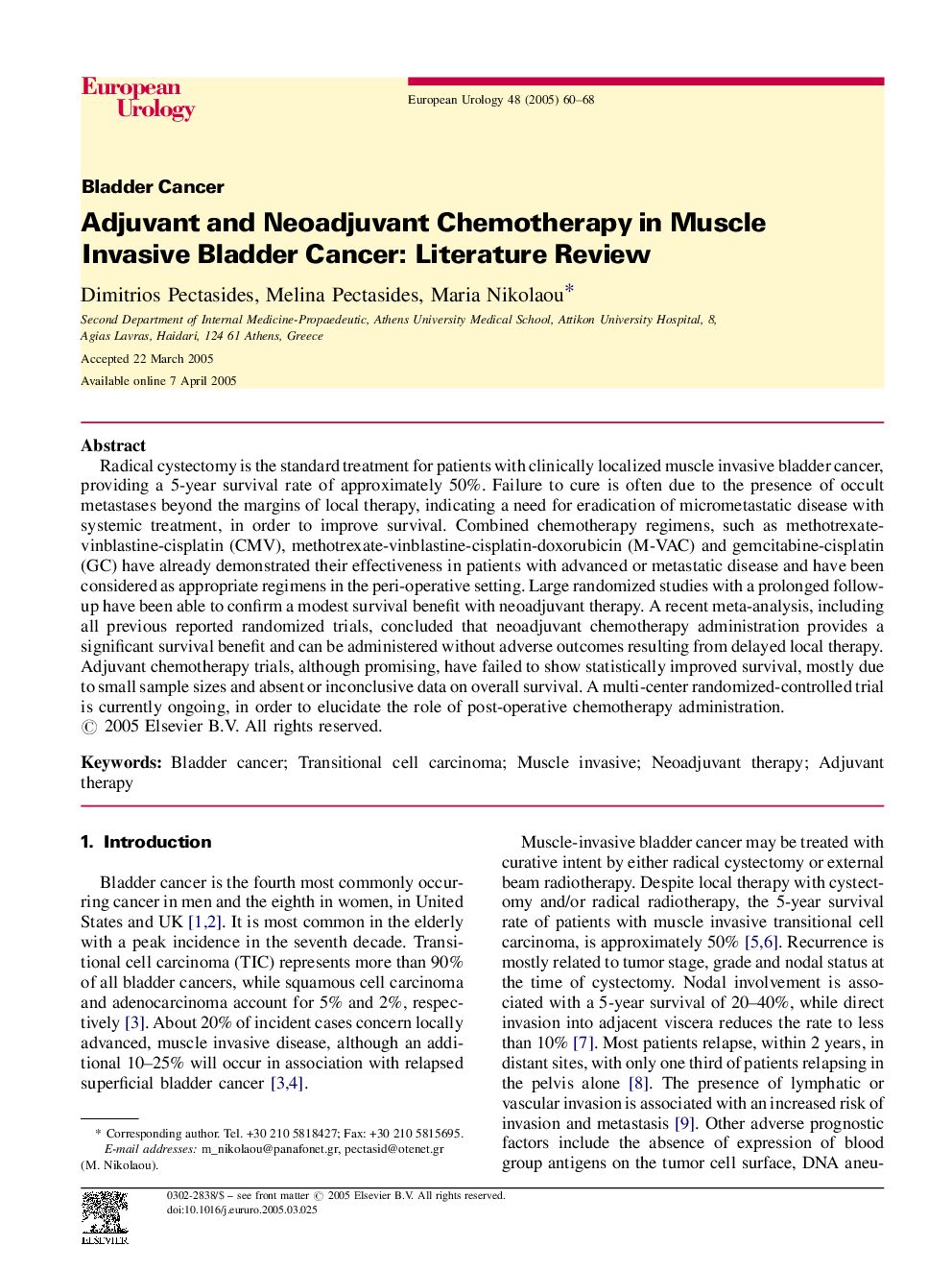| Article ID | Journal | Published Year | Pages | File Type |
|---|---|---|---|---|
| 9320353 | European Urology | 2005 | 9 Pages |
Abstract
Radical cystectomy is the standard treatment for patients with clinically localized muscle invasive bladder cancer, providing a 5-year survival rate of approximately 50%. Failure to cure is often due to the presence of occult metastases beyond the margins of local therapy, indicating a need for eradication of micrometastatic disease with systemic treatment, in order to improve survival. Combined chemotherapy regimens, such as methotrexate-vinblastine-cisplatin (CMV), methotrexate-vinblastine-cisplatin-doxorubicin (M-VAC) and gemcitabine-cisplatin (GC) have already demonstrated their effectiveness in patients with advanced or metastatic disease and have been considered as appropriate regimens in the peri-operative setting. Large randomized studies with a prolonged follow-up have been able to confirm a modest survival benefit with neoadjuvant therapy. A recent meta-analysis, including all previous reported randomized trials, concluded that neoadjuvant chemotherapy administration provides a significant survival benefit and can be administered without adverse outcomes resulting from delayed local therapy. Adjuvant chemotherapy trials, although promising, have failed to show statistically improved survival, mostly due to small sample sizes and absent or inconclusive data on overall survival. A multi-center randomized-controlled trial is currently ongoing, in order to elucidate the role of post-operative chemotherapy administration.
Keywords
Related Topics
Health Sciences
Medicine and Dentistry
Obstetrics, Gynecology and Women's Health
Authors
Dimitrios Pectasides, Melina Pectasides, Maria Nikolaou,
